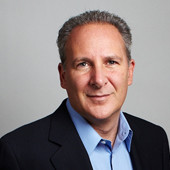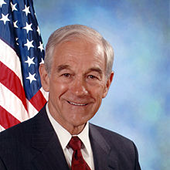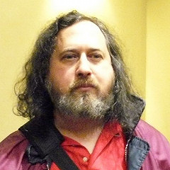According to Haidt, when we have contact with someone-- whether that's by meeting them, reading something they wrote, or watched some video or television appearance that they made-- our elephant starts to lean towards or away from them.
Here are a list of people towards which I've leaned rather heavily over time. All of them are currently-living intellects that have either helped me on the road to discovery on some topic in which I'm interested, or serve as representatives of some issue that I hold dear-- or sometimes, both. Here they are, roughly in order of influence.
 |
Peter Schiff: In my opinion, the Austrian school of macroeconomic thought is the only branch of theory that offers plausible root causes to major economic calamities that have happened over the decades and even centuries. Even if 100% of the school's views aren't correct, it gets more right than it does wrong, what with its emphasis on what is real, versus the smoke and mirrors offered by competing schools of thought. Peter Schiff is one of the most outspoken contemporary proponents of Austrian economics. I admire his "bull in a china shop" courage, even when simultaneously getting attacked by multiple assailants on liberal talk shows or even when testifying in front of congress. I also admire his sincerity and intellectual consistency; unlike a lot of public figures (the hypocritical, almost-currupt Al Gores of the world) he puts his money where his mouth is, building an entire personal portfolio and series of businesses based on his Austrian views. The way that he logically deconstructs practically every issue he sets his mind to-- blowing them to pieces then systematically putting them back together, explaining each step of the way with pure deduction-- is often incredible. |
 |
Jeremy Clarkson: Those that know me will attest to the fact that I spend a significant portion of my intellectual energies on critique, whether that's of video games via my review site, of films, literature, or even straight-up political analysis via blog posts. Possibly the best living critic "in the world" is Jeremy Clarkson. His auto commentary, delivered both via writing and theatrically via Top Gear, is absolutely textbook: concise yet so loaded with colorful imagery, one can immediately understand exactly the notion he's getting at. He's also an eloquent, intelligent, and hilariously funny conservative-- a vocal critic of police and regulatory Statism. Clarkson is a living legend. |
 |
Ron Paul: If intellectual consistency and integrity is important to you, as it is to me, then you'd be hard pressed to find a more admirable politician than Ron Paul. Politicians don't propose legislation because it's good for us, or because it's actually an honest attempt to solve a problem. They propose and pass legislation for one reason: to buy votes. That's how we wound up with a Federal government that consumes 40% of our economy each year. Ron Paul is one of the precious few politicians that has staked his career, unwaveringly, towards reversing this incremental path towards a total government takeover of the economy. It was humerous watching him during the GOP presidential primary debates in 2012, because you could tell he was the only one on the stage that was at peace with himself and could spend 100% of his effort towards the issues, versus defending old baggage, intellectual inconsistency and hypocrisy like everyone else on the stage. He's also a long-time proponent of Austrian economics, which cements him on this list. |
 |
Richard Stallman: I bet Richard Stallman and I fundamentally disagree on 99% of our political views. But the one area-- and it's a hugely important one for me-- where he champions something in an emphatic, intellectually consistent and honest way, is with regards to copyright and patent law, and the importance of making software tools Free whenever and wherever possible. Government granted monopolies do nothing but disincentivize innovation and misallocate capital in our economy. Just think what could have happened if companies would have taken the billions of dollars spent on copyright and patent litigation, and spent that on improving their products, growing their businesses, and raising our standard of living instead? And that doesn't even get into the massive bureaucracies needed to enforce these laws, and the macro utility lost when these dollars were taxed/borrowed/printed. Richard Stallman's courage and consistency should be commended! |
 |
Gabe Newell: Like Richard Stallman, Gabe Newell and I probably have our political differences, and I understand that Newell is a big Democratic donor. Everything else about him reminds me of others on this list, such as Peter Schiff; Newell is a highly successful businessman, an absolute pragmatist who is always hedging his bets-- such as his company's recent foray into GNU/Linux-- and can be quite the industry visionary, capitalizing on his visions with products like Steam, which dominates modern PC gaming. His foresight and adeptness at big-picture, systematic thinking causes me to listen and take note when he speaks. |